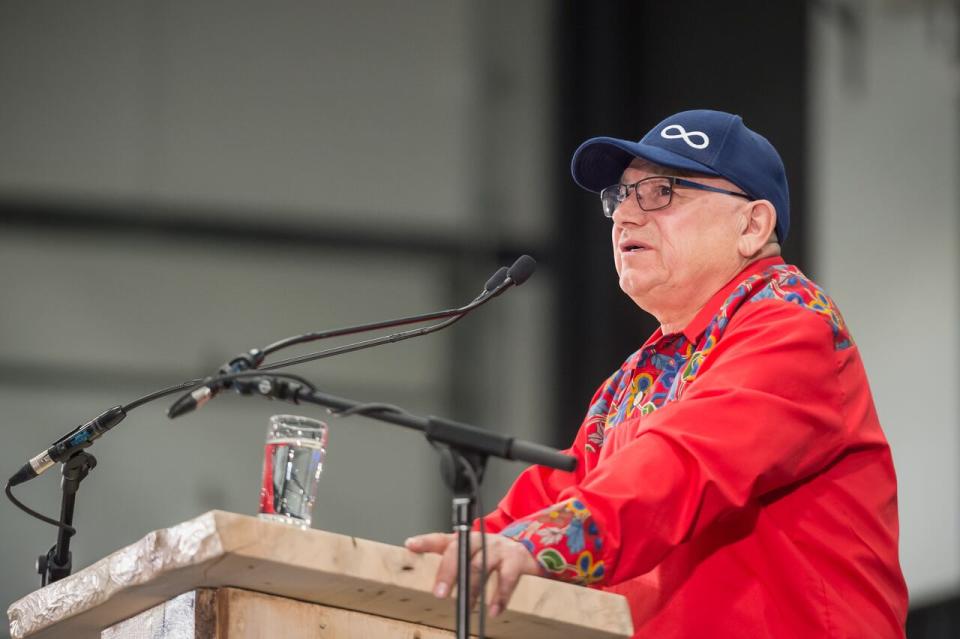Toddlers get chance to learn Michif language in new pre-K program in Battleford

Sixteen students entering the doors at St. Vital school in Battleford this fall will be part of a program aimed at expanding and strengthening Métis culture and the Michif language.
The new Michif pre-kindergarten program is a collaboration between Living Sky School Division and Métis Nation-Saskatchewan (MN-S). Michif is a Métis language spoken in parts of Canada and the U.S., and combines Cree, French and other languages.
Rachel Florence, a learning consultant at the school division, said the program evolved out of a need in the community.
"We found out that we have a great amount of interest in our community regarding the Michif language and Métis culture. We have many families already within our school division who are Métis people," Florence said.
"This felt like a great way of talking to each other and trying to get some work started for our early learners to bring the language and culture back to the people."
The program is for three- and four-year-olds, and will include language and cultural programming along with a focus on outdoor education, with an elder involved alongside a teacher and support staff. It's a full-time, pre-kindergarten program, with students at the school Monday through Thursday.
Florence said that her learning, like that of her peers, is ongoing, particularly when it comes to how Métis communities have historically been limited in how they can express their language and culture.
"I'm glad that we're doing something to help, to be supportive of people being proud of their whole selves, every part of themselves," she said, explaining that includes pride in both their French and Indigenous heritage.
This is not MN-S's first Michif-focused learning project. Similar offerings are available across the province, including in Regina, Saskatoon and the Northern Lights School Division, which encompasses a wide swath of northern Saskatchewan.
MN-S president Glen McCallum said these programs are essential for community growth, especially when a loss of language can be directly connected to trauma in the community.
"Because a lot of people talk about what has happened when young children were taken away to residential school, they were learning foreign languages and forgot about their language. Some stayed 10 to 15 years and lost their way of life," he said. "And so we're trying to replace that."

Métis Nation-Saskatchewan president Glen McCallum says language programs are essential for community growth. (Submitted by Métis Nation-Saskatchewan)
Christine Gibson, a superintendent of learning at Living Sky School Division, said multiple schools were options for the program, but St. Vital was selected because of available space and the options for outdoor education there. She said support from MN-S has been invaluable, allowing the division to make these lessons available to all students.
Gibson said she has learned through this process that the Michif language and its various dialects remain at risk.
"Just how close to extinction it is and how important it is to try to revitalize that, I think … is something that I've taken away."
McCallum said programs like this one are evidence of progress.
"A lot of times people talk about reconciliation, but [do] nothing to back it up. Right now we're trying as much as we can to create this relationship with Living Sky in Battleford, to be able to have a program that really complements the efforts of both sides to be able to address the issue of language."


